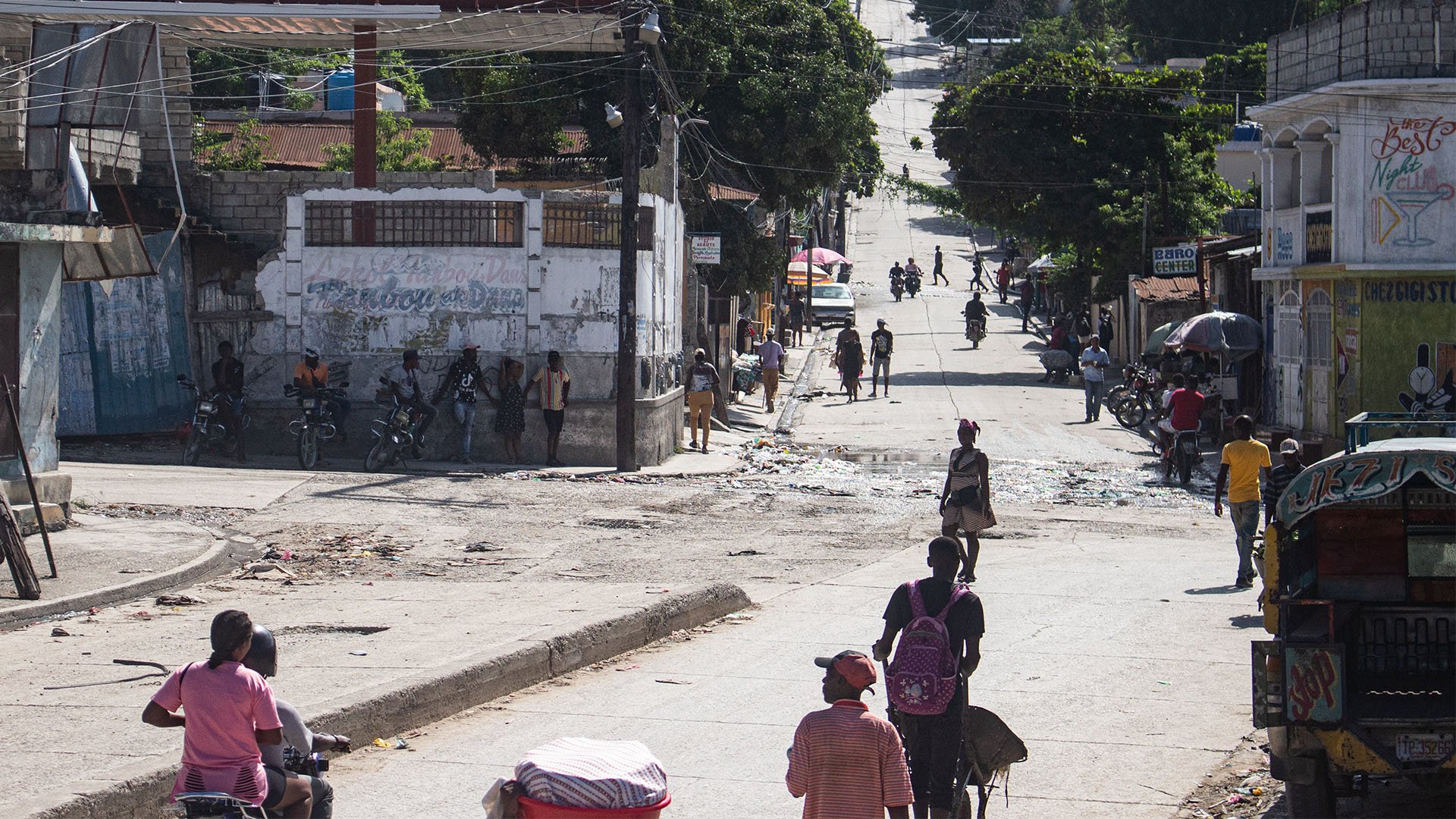Haiti has descended into chaos, with what’s left of its government calling a state of emergency even as acting prime minister Ariel Henry can’t return to the country due to escalating unrest, and as a gang leader threatens “civil war” if he doesn’t resign.
Critics say Henry, who was away in Kenya trying to shore up a deal for the deployment of an international security mission to help quell rampant gangs, has no legitimacy as prime minister, and accuse the US and its allies of trying to prop up a corrupt elite.
After a CARICOM summit last week in Guyana, regional leaders said Henry had committed to elections by 31 August next year, but with gang leader Jimmy Chérizier calling on Haiti’s myriad armed criminal groups to join forces and overthrow him, much is now uncertain.
What is clear is that Haiti's new surge of unrest is causing a dramatic increase in the country’s humanitarian needs, displacing thousands, and leaving many with no shelter and little access to food and medical services.
According to the UN’s emergency aid coordination body, OCHA, nearly 15,000 people were driven out of sites for internally displaced people around the capital, Port-au-Prince, over the weekend – 10 of the 12 sites were emptied completely.
With many hospitals in Port-au-Prince no longer functioning, Médecins Sans Frontières (MSF) reported that the number of injured in the capital has risen sharply and said it was scaling up its operations.
Roadblocks and insecurity make transporting those wounded by ambulance or using mobile clinics impossible, while those hospitals that are still functioning are running out of medical supplies.
Henry, who has been acting head of state since president Jovenel Moïse’s assassination in July 2021, has faced a crisis of legitimacy for years, and was supposed to step down in February.
Instead, he redoubled efforts to push for a UN-approved Multinational Security Support (MSS) mission to be deployed in Haiti, travelling last week to Kenya, the country slated to lead the mission but whose courts had blocked it.
Gang leaders took advantage of Henry's travel to take control of key infrastructure and prevent him from returning, setting police stations on fire and launching an assault on the international airport. Armed groups also stormed two penitentiaries, freeing more than 3,600 inmates, many of them gang members. At least 12 people were killed and many more wounded.
On 5 March, Henry landed in Puerto Rico and was reported to be looking for ways to return to his country, while the United States and CARICOM are reportedly now pressuring him to resign.
Some reports suggest former police chief, senator, and paramilitary leader Guy Philippe, who played a role in Jean-Bertrand Aristide’s 1991 ouster and was recently released from prison in the US, is looking to lead a transitional presidential council.
The roots of Haiti’s problems date back to colonial times. Although the Caribbean nation became the world’s first Black republic in 1804, it was forced to pay billions to France in order to secure its freedom. That debt crippled Haiti economically and – combined with decades of dictatorships, natural disasters, political and environmental mismanagement, a long US military occupation, and a debilitating US trade embargo – contributed to its recent turmoil.
Here are 10 stories that provide some background and help to put Haiti's current situation in a broader context:
As US pushes police mission, sceptical Haitians seek to rebuild their country themselves
Many in Haiti are wary of foreign interventions and are seeking their own ways to turn the corner on years of rampant gang violence.
From a judge to a rapper, what 9 Haitians make of a foreign intervention
Haitians of different backgrounds who face gang violence daily give their views on the deployment of a Kenya-led police mission.
Q&A: The problem with the international force set for Haiti
A foreign intervention is imminent. Haitian rights supremo Pierre Espérance explains why it could do more harm than good.
‘We can't find support’: Three women’s stories of repeated rape by Haitian gangs
Rape has become a weapon of war for gangs to fight rivals and control communities and territory. Three survivors tell their stories.
‘Q&A: How to fix Haiti’s ‘house on fire’
The UN’s Independent Expert on Human Rights in Haiti hasn’t given up hope but says more urgency is needed to address daunting challenges.
Haiti offers glaring example of aid sector’s growing urban response challenges
When formal camps don’t work and accessing those in need is hard, what role can humanitarians play?
EXCLUSIVE: Surge in use of rape against women and rivals by Haiti gangs
Women and girls are being hunted down by armed groups who are using rapes and targeted killings as a weapon of war.
Can Haiti rebuild a food system broken by disaster, historical injustice, and neglect?
Years of political unrest, under-investment in agriculture, and repeated earthquakes and storms have left 4.3 million people facing acute hunger.
In Haiti, gang violence strains aid operations and demands new approaches
With 2.5 million in need living in areas under armed control, aid groups have to find ways to work with the gangs despite the escalating violence.
Haiti earthquake aid slowed by gangs, blocked roads, and shipping delays
Even before the quake, millions of Haitians needed urgent food aid, while the south was still rebuilding from a devastating 2016 hurricane.















